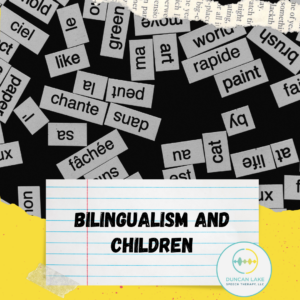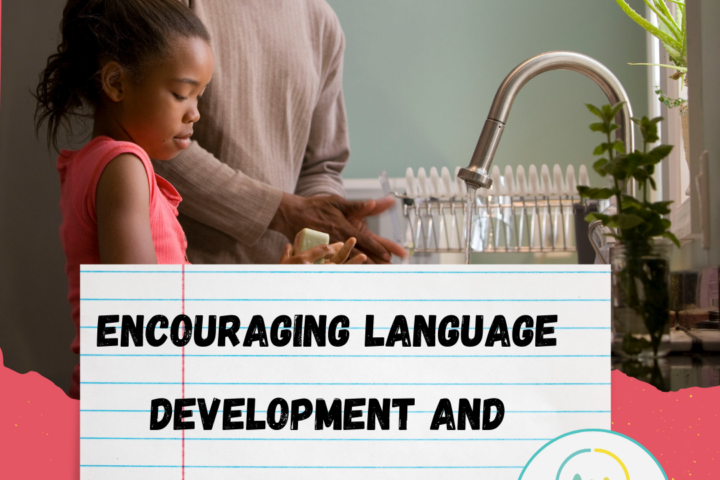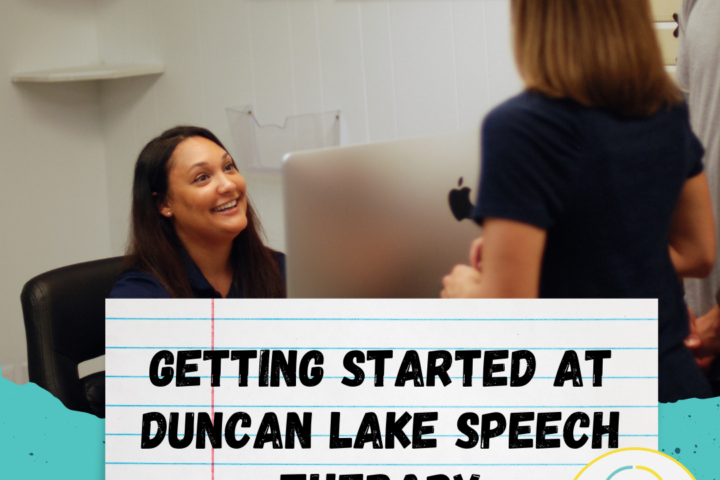Hannah Blackwell, M.A., CF-SLP
Duncan Lake Speech Therapy
Many are worried about the possible negative effects on language development that raising their child to be bilingual may have. However, there is no evidence indicating that bilingualism causes language delays, nor that it worsens already existing speech problems. Just as all children are unique in their development, bilingual children are also unique in their language development. Like monolingual children, bilingual children often speak their first words by the time they are one year old, and by two years old they often begin to use 2-word phrases.

While there are some similarities between bilingual and monolingual language development, early differences in language performance between bilingual children and monolingual children may exist. The reason for these early differences has to do with differences in language development patterns between bilingual and monolingual children. For instance, bilingual children often understand earlier that language is symbolic and that one word can have multiple meanings, however this does not always translate to improved vocabulary or verbal expression abilities. Some bilingual children may go through a “silent period” where they may not talk much and some may have trouble using both languages. Sometimes, they may mix grammar rules or use words from both languages in the same sentence. Differences such as these may cause parents and professionals to think a language delay is present, when really, bilingual children simply have a different developmental pattern. By the time they reach middle school, bilingual children have the same verbal ability as monolingual children.
Children all over the world commonly learn more than one language and do so without negative outcomes. In fact, there are actually quite a few benefits to raising your child to speak more than one language. Children who are bilingual are often better at learning new words, developing reading skills, being able to use information in new ways, categorizing words, coming up with solutions to problems, and connecting with others. Overall, bilingual children often have increased cognitive skills and language learning skills. The benefits of bilingualism are too great to ignore, so keep teaching your children more languages and exposing them to new cultures. It’ll only help their speech, language, and cognitive development!
References
Marian, Viorica. (2009). Bilingualism: Consequences for Language, Cognition, Development, and the Brain. https://leader.pubs.asha.org/doi/10.1044/leader.FTR2.14132009.10
ASHA. Learning Two Languages. https://www.asha.org/public/speech/development/learning-two-languages/
ASHA. The Advantages of Being Bilingual. https://www.asha.org/public/speech/development/the-advantages-of-being-bilingual/




